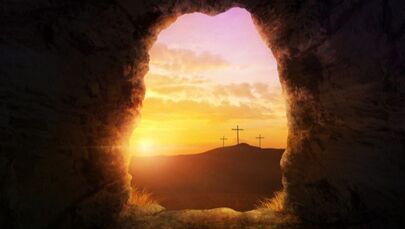Christianity offers some weighty pillars of truth that helps shape our understanding and worldview. God entered our world, a baby in a manger. Jesus experienced human life with its suffering and joy. Jesus died for us on a cross, taking our sin and shame. Jesus rose to new life, victorious over sin and death. If you read John Harris’ article you will find him longing for community and fellowship to explore shared meaning. We have such a community, not just in the people around us today, but in the community of faith which over millennia have wrestled with the hard questions of life. As a Christian community, we 1) think about issues in Sunday messages like this, and as we gather in small groups to discuss how faith and bible teaching help us. 2) We draw strength from the relationships we develop within the family of faith. Given the difficulties we have faced recently and reflecting on the way our church family has responded, Diana Caldwell wrote, “This is what community is all about – loving and supporting each other through all the ups and downs of life.” 3) We find comfort from the tender mercies of God. We don’t have answers to every question, but we do have a spiritual framework to use together that supports us in difficult times.
Central to this is the resurrection of Jesus which we celebrate today. The resurrection is not a neatly packaged theological theory, it has practical implications for a troubled world. If Jesus is risen from the dead, it is a defining moment in history which changes everything.
Initially, hearing news of the empty tomb, the disciples thought it was nonsense. When you look at Jesus life and teaching much of it was nonsense. Being born again was non-sense to Nicodemus. Jesus’ claim to rebuild the temple in three days was non-sense to the Jewish authorities. His claim of truth was non-sense to Pilate who with distain asked, What is truth? Yet to those who believe Jesus is risen, his nonsense suddenly makes sense. It makes sense of the value and meaning of life. It makes sense of justice, as he took our penalty. It makes sense of the radical claims, being crucified with Christ, being born again, and being given a new heart and spirit. I don’t mean we fully understand all these things, but that we have a framework that gives us a context to discuss difficult issues, and gives us hope of the future resolution of these issues. Because of the resurrection we see ourselves and others in a new light, we discover a new way of living, we find our place in the family of God, we discover meaning and purpose, and we can engage with difficult challenges like this past year of COVID.
For reflection:
How has the resurrection of Jesus changed your life?
How does being part of a community of faith help you to live through and make sense of difficult times?
Rev John Malcolm

